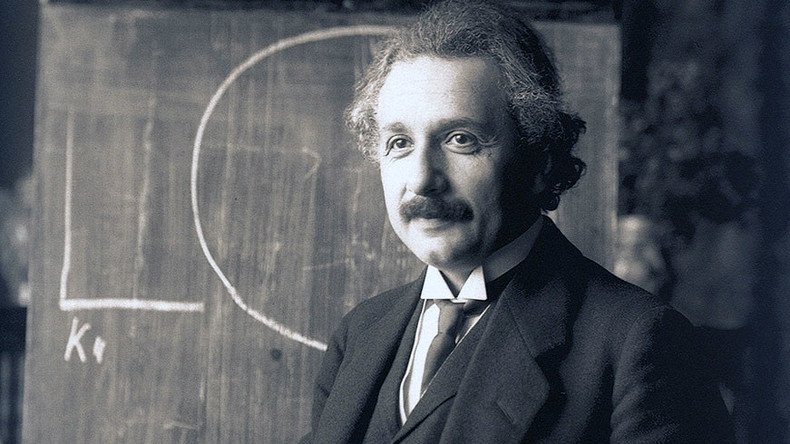Einstein’s not so bright idea? Researchers challenge speed of light theory

Albert Einstein’s theory that light travels at a constant speed in the vacuum of space is being challenged by researchers who propose that the physicist may have got it wrong. They believe light traveled much faster after the big bang.
João Magueijo from the Imperial College London and Niayesh Afshordi from the University of Waterloo in Canada first proposed the idea back in the 1990s. They now believe their theory can be tested using future observations of cosmic microwave background radiation, a map of the oldest light in the universe, according to their study published in the journal Physical Review.
My favorite quote: "The alternative theory is inflation"https://t.co/nj2YDZNC97
— Niayesh Afshordi (@nafshordi) November 26, 2016
The researchers believe that light travelled at an infinite speed following the big bang, before slowing down to what we define as lightspeed today (186,000mps/ 300,000kps). The variation is necessary to explain how the universe looks so uniform, which would have required light to reach every inch of the cosmos to even out its appearance.
The new theory builds on the ‘Inflation’ theory, which suggested that the early universe was small before a sudden expansion. Magueijo and Afshordi believe the speed of light was much greater at first, before then dropping as the density of the universe changed.
On this day in 1915, Einstein submitted his final paper on the general theory of relativity. Happy birthday, general relativity! #GR101pic.twitter.com/UXfPJVoaqe
— Albert Einstein (@AlbertEinstein) November 25, 2016
"The theory, which we first proposed in the late-1990s, has now reached a maturity point – it has produced a testable prediction," said Magueijo. "If observations in the near future do find this number to be accurate, it could lead to a modification of Einstein's theory of gravity."
Their theory will be put to the test over the coming years as they examine cosmic microwave background radiation, with the leftover radiation from the big bang being measured as it changes.
David Marsh from the Centre for Theoretical Cosmology at Cambridge University isn’t completely convinced by the new theory though.
Marsh told The Guardian“The predictions of inflation developed by Stephen Hawking and others more than 30 years ago have been tested by cosmological observations and faced those tests remarkably well.”












